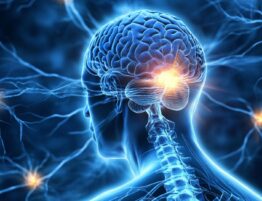A concussion is a type of mild traumatic brain injury that occurs when a blow, bump, or jolt to the head disrupts normal brain function. This injury can significantly impact daily life, causing symptoms like memory problems, persistent headaches, and overwhelming fatigue. Concussions commonly result from sports injuries, falls, car accidents, or any situation involving head trauma, affecting people of all ages.
Proper management is critical to avoid complications and ensure complete recovery. Without appropriate care, concussion symptoms can linger for extended periods or worsen over time. Repeated concussions can lead to serious long-term brain damage, making early intervention essential.
The concussion recovery timeline varies significantly from person to person. Most individuals heal within days to weeks with proper rest and medical guidance. However, some people require months for complete recovery, particularly if they don’t follow recommended treatment protocols. Early rest, limited screen time, gradual return to activities, and consistent medical supervision help speed recovery and prevent complications.
Ignoring concussion symptoms risks delayed healing or the development of post-concussion syndrome, a condition where symptoms persist for months. Healthcare providers use various tests and assessments to monitor progress throughout recovery. Following medical advice ensures safety and optimal healing outcomes.
Common Concussion Symptoms
A concussion disrupts normal brain function temporarily, causing a range of symptoms that can appear immediately after injury or develop gradually over several days. Recognizing concussion symptoms early is crucial for ensuring appropriate treatment and optimizing the concussion recovery timeline.
Primary Concussion Symptoms:
- Headaches: Persistent or throbbing head pain is the most common symptom. The pain can range from mild discomfort to intense pressure, may affect one side of the head, and often worsens with physical activity, bright lights, or loud noises.
- Confusion and Cognitive Difficulties: Trouble thinking clearly, remembering recent events, or processing information. Once simple tasks may suddenly feel complicated or overwhelming, and concentration becomes challenging.
- Dizziness and Balance Problems: A sensation of lightheadedness, feeling unsteady, or experiencing the room spinning. This increases the risk of falls and makes normal movement difficult.
- Nausea and Vomiting: An upset stomach or queasiness, often accompanied by vomiting or loss of appetite, particularly in the hours immediately following the injury.
- Extreme Fatigue: Overwhelming tiredness and lack of energy that makes even routine daily activities feel exhausting. This fatigue doesn’t improve with normal rest.
- Sensitivity to Light and Sound: Increased discomfort or pain when exposed to bright lights or loud noises, making normal environments feel overwhelming.
- Sleep Disturbances: Difficulty falling asleep, staying asleep, or sleeping more than usual. Sleep patterns often become disrupted after a concussion.
- Mood Changes: Increased irritability, sudden sadness, anxiety, or emotional instability that’s unusual for the person’s typical personality.
These concussion symptoms signal that the brain needs rest and recovery time. The concussion recovery timeline depends heavily on symptom severity and how quickly treatment begins. Most people show significant improvement within 7-14 days with proper rest and management.
Both physical and mental rest are crucial during early recovery. Avoiding screens, limiting reading, staying away from loud environments, and reducing cognitive demands all help the brain heal. Doctors typically recommend a gradual, supervised return to normal activities based on symptom improvement. Severe or worsening symptoms require immediate medical evaluation to rule out more serious complications.
Post-Concussion Syndrome

Post-concussion syndrome (PCS) occurs when concussion symptoms persist well beyond the typical recovery period. While most concussion symptoms fade within two to four weeks, people with post-concussion syndrome experience symptoms that last for months or even longer, significantly disrupting daily life, work performance, and relationships.
This condition affects approximately 10-20% of people who suffer concussions. Understanding the causes, recognizing persistent symptoms, and seeking appropriate treatment are essential for managing post-concussion syndrome effectively.
- Common Post-Concussion Syndrome Symptoms: Chronic headaches that don’t improve with standard treatments, persistent dizziness and balance problems, ongoing cognitive difficulties with memory and concentration, severe fatigue that doesn’t improve with rest, continued sleep disturbances, sensitivity to light and sound, and mood changes, including irritability, anxiety, or depression.
- Understanding the Causes: The exact mechanisms behind post-concussion syndrome aren’t fully understood, but research suggests brain inflammation, disrupted neural pathways, and changes in brain chemistry may all play roles. Risk factors include having a severe initial concussion, a history of previous head injuries, pre-existing mental health conditions, or not following proper recovery protocols after the initial injury.
- Treatment Approaches: Managing post-concussion syndrome requires comprehensive medical attention and a multidisciplinary approach. Treatment strategies include continued rest during symptom flares, cognitive therapy to address memory and concentration problems, medications to ease headaches or manage anxiety and depression, and gradual, supervised return to normal activities to prevent setbacks. Vestibular therapy can be particularly helpful for persistent dizziness and balance problems. Psychological support helps address mood changes and the emotional impact of prolonged symptoms.
The recovery timeline for post-concussion syndrome varies widely between individuals. Some people improve within a few months with proper treatment, while others may experience symptoms for a year or longer.
Mild Traumatic Brain Injury: Assessment and Monitoring
Mild traumatic brain injury (mTBI), commonly known as a concussion, involves a temporary disruption of normal brain function following a blow or jolt to the head. Neurologists play a crucial role in accurately assessing injury severity, monitoring recovery progress, and preventing complications that could prolong concussion recovery.
Proper neurological evaluation ensures accurate diagnosis, tracks healing progress, and helps patients return to normal activities safely. Early intervention by specialists significantly shortens recovery time and reduces the risk of developing post-concussion syndrome.
- Comprehensive Assessment Methods:
Healthcare providers conduct detailed symptom reviews, asking specific questions about headaches, nausea, dizziness, memory problems, and other concussion symptoms. They analyze medical history, including prior head injuries, existing health conditions, and medications that might affect cognition. Neurological examinations test reflexes, balance, coordination, muscle strength, and eye movement. Cognitive testing using standardized assessments measures memory, attention span, and problem-solving abilities. Brain imaging through CT scans or MRI may be ordered to rule out bleeding, swelling, or structural damage. Balance and vestibular testing evaluate dizziness and spatial awareness problems common with mild traumatic brain injury.
- Ongoing Monitoring:
Regular follow-up appointments, typically every 1-2 weeks initially, allow healthcare providers to monitor symptom changes, assess healing progress, and adjust treatment recommendations accordingly. Most people with mild traumatic brain injury recover within 7-14 days with proper rest and gradual return to activities. However, persistent or worsening symptoms may indicate complications requiring more intensive intervention.
Concussion Recovery Timeline: Phases and Expectations
Understanding the concussion recovery timeline helps patients and families know what to expect during healing. While recovery varies by individual, most people follow a predictable progression through distinct phases, each supporting brain healing in specific ways.
Recovery Timeline Phases:
- Immediate Rest Phase (Days 1-3): Complete physical and mental rest is critical. Limit screen time, avoid reading, minimize noise exposure, and stay in dim lighting. Sleep as much as needed and avoid any activities that worsen symptoms.
- Symptom Monitoring Phase (Days 3-7): Continue resting while carefully tracking symptoms daily. Note any changes in headache intensity, dizziness, cognitive difficulties, or other symptoms to share with healthcare providers.
- Light Activity Introduction (Days 4-10): If symptoms are improving, begin with very light activities, such as short walks or brief periods of reading. Stop immediately if symptoms worsen and return to complete rest.
- Cognitive Activity Return (Days 7-14): Gradually resume light mental activities like limited work tasks or schoolwork for short periods. Increase duration slowly based on symptom tolerance.
- Physical Activity Progression (Days 10-21): Begin light aerobic exercise like walking or stationary cycling at low intensity. Avoid contact sports or any activity with a risk of head injury.
- Medical Clearance (Days 14-28): Healthcare providers conduct thorough evaluations to determine readiness for full activity return, including symptom assessment, cognitive testing, and sometimes exercise stress testing.
- Sport-Specific Training (Weeks 3-4+): Athletes practice sport-specific drills without contact, gradually increasing intensity based on symptom response.
- Full Activity Return (Weeks 3-6+): Resume all normal activities, including contact sports, only after complete medical clearance and absence of symptoms during exertion.
Throughout the concussion recovery timeline, patience is essential. Rushing recovery or ignoring symptoms risks prolonged healing, repeat injury, or the development of chronic problems. Most people recover completely within 2-4 weeks when following protocols carefully.
When to See a Neurologist
Knowing when to see a neurologist for concerns about head injury can prevent complications and ensure appropriate treatment. While primary care physicians can manage many concussions, certain warning signs indicate the need for specialized neurological evaluation.
Severe or worsening headaches that don’t respond to standard pain medication, persistent memory problems beyond the initial injury period, ongoing dizziness or balance problems that last beyond two weeks, seizures or any episode of uncontrolled shaking, vision changes including blurred or double vision, increasing confusion or disorientation, weakness or numbness in limbs, speech difficulties, significant mood or personality changes, and any concussion symptoms that persist or worsen beyond the typical recovery period.
Understanding when to see a neurologist depends on both symptom severity and duration. Sudden, severe symptoms like seizures or significant confusion require immediate emergency care. Persistent symptoms that don’t improve with standard treatment warrant prompt neurological consultation.
Neurologists conduct comprehensive evaluations, including detailed neurological examinations, cognitive assessments, balance testing, and brain imaging when necessary. They can identify complications, diagnose post-concussion syndrome, and develop specialized treatment plans. Early neurological intervention often prevents long-term complications and supports better recovery outcomes.
Supporting Your Recovery
Recovering from a mild traumatic brain injury requires patience, proper rest, and following medical guidance carefully. Rest your brain and body completely during the initial days after injury. Gradually increase activities only as symptoms allow, never pushing through worsening symptoms. Stay well-hydrated and eat a nutritious diet rich in brain-healthy foods. Attend all follow-up appointments and communicate honestly with healthcare providers about symptoms. Get adequate sleep and maintain regular sleep schedules. Avoid alcohol and activities with risk of repeat head injury until fully cleared by medical professionals. With proper care and patience, most people recover completely from concussions.












I've given up... the stress her office staff has put me through is just not worth it. You can do so much better, please clean house, either change out your office staff, or find a way for them to be more efficient please. You have to do something. This is not how you want to run your practice. It leaves a very bad impression on your business.
Please, leave your review
Write a comment: